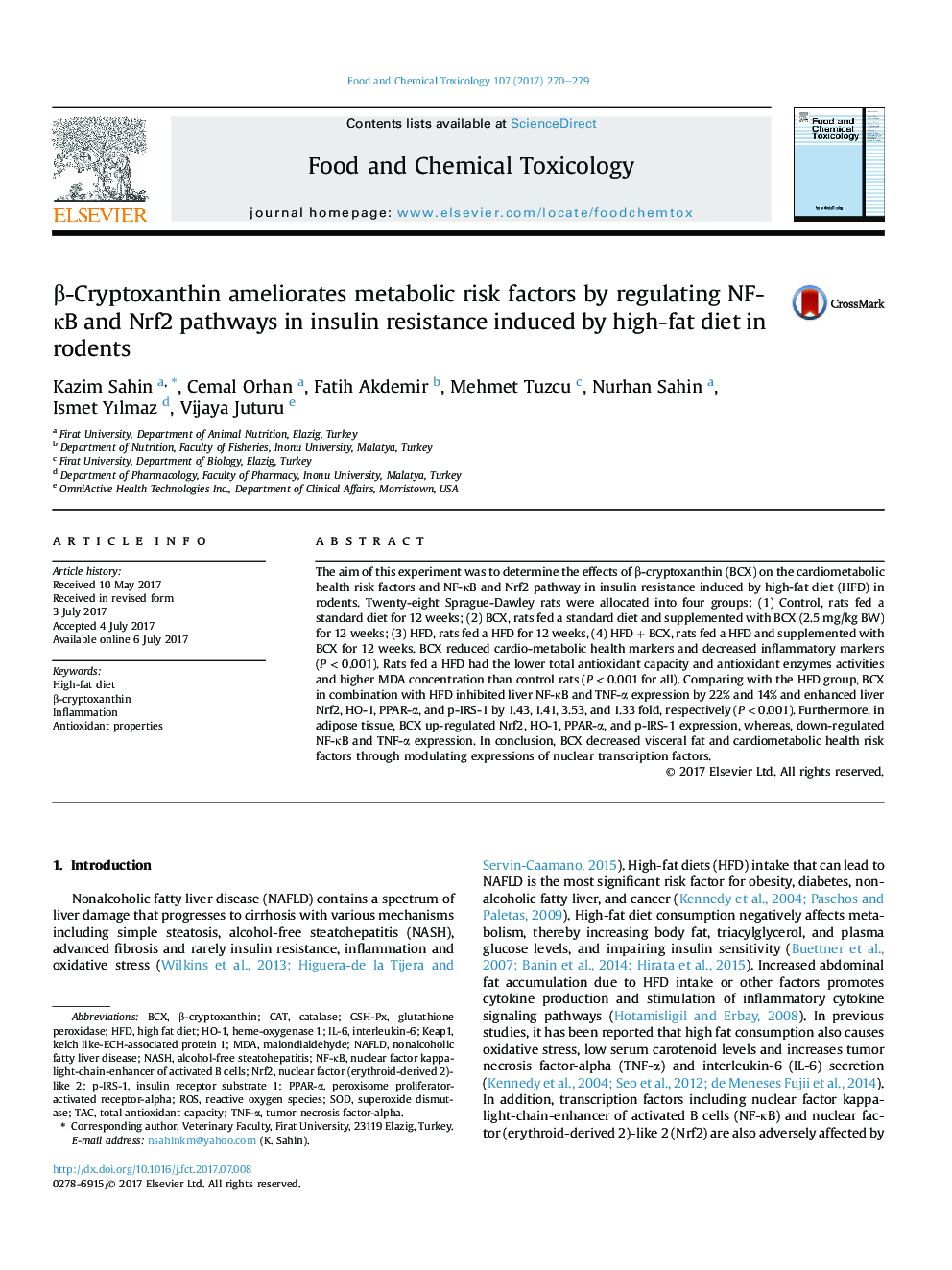| Article ID | Journal | Published Year | Pages | File Type |
|---|---|---|---|---|
| 5560081 | Food and Chemical Toxicology | 2017 | 10 Pages |
â¢Beta-cryptoxanthin is a natural carotenoid with antioxidant properties.â¢Beta-cryptoxanthin regulates NF-κB and Nrf2 pathways and modulates the antioxidant enzyme system in rats fed HFD.â¢Beta-cryptoxanthin reduces cardiometabolic risk factors via decreasing visceral fat deposition.
The aim of this experiment was to determine the effects of β-cryptoxanthin (BCX) on the cardiometabolic health risk factors and NF-κB and Nrf2 pathway in insulin resistance induced by high-fat diet (HFD) in rodents. Twenty-eight Sprague-Dawley rats were allocated into four groups: (1) Control, rats fed a standard diet for 12 weeks; (2) BCX, rats fed a standard diet and supplemented with BCX (2.5 mg/kg BW) for 12 weeks; (3) HFD, rats fed a HFD for 12 weeks, (4) HFD + BCX, rats fed a HFD and supplemented with BCX for 12 weeks. BCX reduced cardio-metabolic health markers and decreased inflammatory markers (P < 0.001). Rats fed a HFD had the lower total antioxidant capacity and antioxidant enzymes activities and higher MDA concentration than control rats (P < 0.001 for all). Comparing with the HFD group, BCX in combination with HFD inhibited liver NF-κB and TNF-α expression by 22% and 14% and enhanced liver Nrf2, HO-1, PPAR-α, and p-IRS-1 by 1.43, 1.41, 3.53, and 1.33 fold, respectively (P < 0.001). Furthermore, in adipose tissue, BCX up-regulated Nrf2, HO-1, PPAR-α, and p-IRS-1 expression, whereas, down-regulated NF-κB and TNF-α expression. In conclusion, BCX decreased visceral fat and cardiometabolic health risk factors through modulating expressions of nuclear transcription factors.
